Meet the everyday athletes who overcame adversity to achieve incredible goals
As Billy Monger breaks the Ironman record for a double amputee, we look at five instances where runners have overcome extreme challenges

Back in 2017, then racing driver Billy Monger was involved in a near-fatal crash at Donington Park.
Following the accident, Billy - who had been just 17 at the time - woke up in hospital.
It was three days later and both his legs had been amputated.
This week, the now 25-year-old broke the Ironman record for a double amputee at the World Championships in Kona, Hawaii.
By finishing the 226.3km (140.6 mile) course, which featured a 3.8km swim, 180km cycle and a marathon run, in 14 hours 23 minutes and 56 seconds, Billy knocked more than two hours off the previous record.
He also perfectly demonstrated the power and resilience of the human mind and body.
That power is something that is a consistent theme on the Running Tales Podcast and in this newsletter, so today we decided to take a look at some of the stories of runners who have overcome huge barriers to do extraordinary things…
Prostate cancer couldn't stop Nigel Watson finishing the 'toughest footrace on Earth':

When Nigel Watson was diagnosed with prostate cancer he was determined it wouldn’t beat him.
A keen runner who had not only completed marathons but also represented Great Britain at triathlon for his age group, Nigel knew he had to keep active.
“My running and my sports are really, really important to me. I've got a real positive attitude towards life.
“This was never, ever going to beat me. The big challenge was how would it affect me physically and the view of the consultant was if you can continue to run, healthy mind, healthy body, just keep doing so.
“When anybody gets that diagnosis, it comes as an immediate shock to you, but you go one or two directions.
“You either let it control you or you control it.”
One of the ways Nigel decided to control his cancer was by taking on the self-styled ‘toughest footrace on the planet,’ the Marathon des Sables.
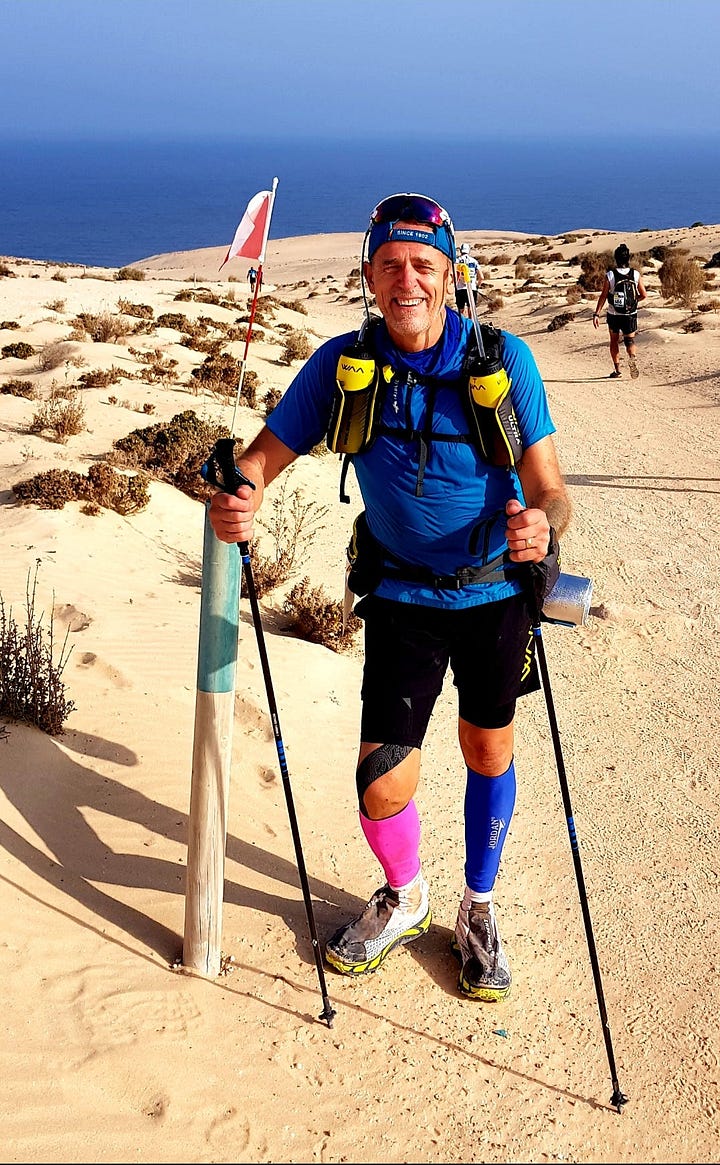
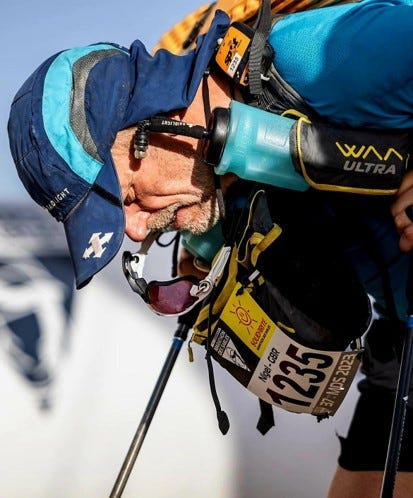
The 254km (156-mile) six day ultra marathon through the Sahara Desert presented a host of challenges along the way, but Nigel’s determination was enough to see him through - even after he started to suffer with the effects of heat stroke on the longest day of the race.
“I sat down against a wall and spent the next 45 minutes in and out of consciousness.
“I was suffering from heat stroke, but luckily for me the medics were busy with so many other people, they didn't get to me for quite a while and I'd started to come round.
“I can honestly say it was the longest day of my life, but the most fulfilling one. It took me to the limit. I'm really, really proud to have finished it.
“MDS stretches your boundaries. It takes you beyond things you think you're capable of, both mentally and physically. And I think you come back with a different respect for yourself.”
The triathlete and extreme distance runner who was told she wouldn’t walk unsupported again:
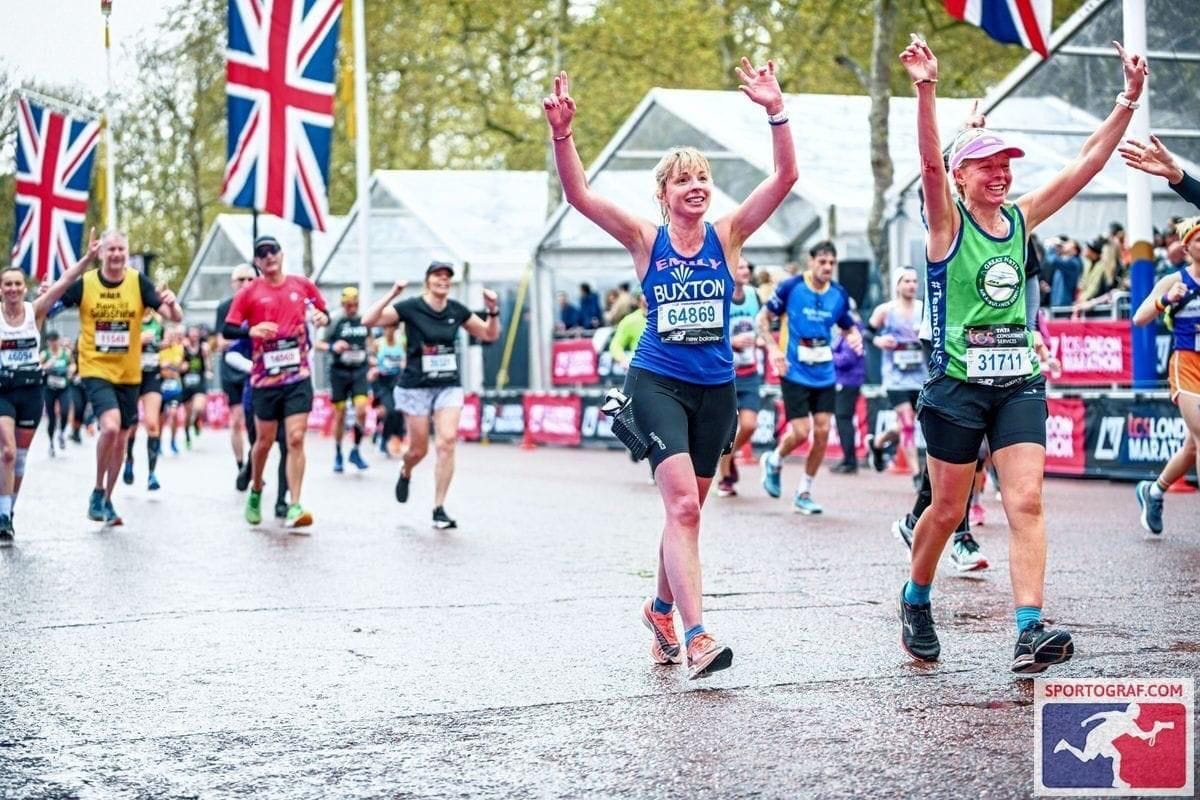
As a teenager, Emily Moore always enjoyed long-distance running, with an obsession for South African track star Zola Budd forging a love of not only the 1,500m but of barefoot running.
But as she grew older, running faded from Emily’s life and following an accident when she was just 19 it looked like it would disappear altogether.
By the age of 21, Emily was facing the prospect of having to walk with elbow crutches and had been told she’d probably never walk unsupported again.
“I was determined my life wouldn't be that. I just started off running 5ks and then 10ks.
“When I was growing up, my first PE teacher at school had done the London Marathon. And she came in with this silver blanket - I must have been five or six - and I just wanted one.
“I was determined I was going to do the London Marathon.”
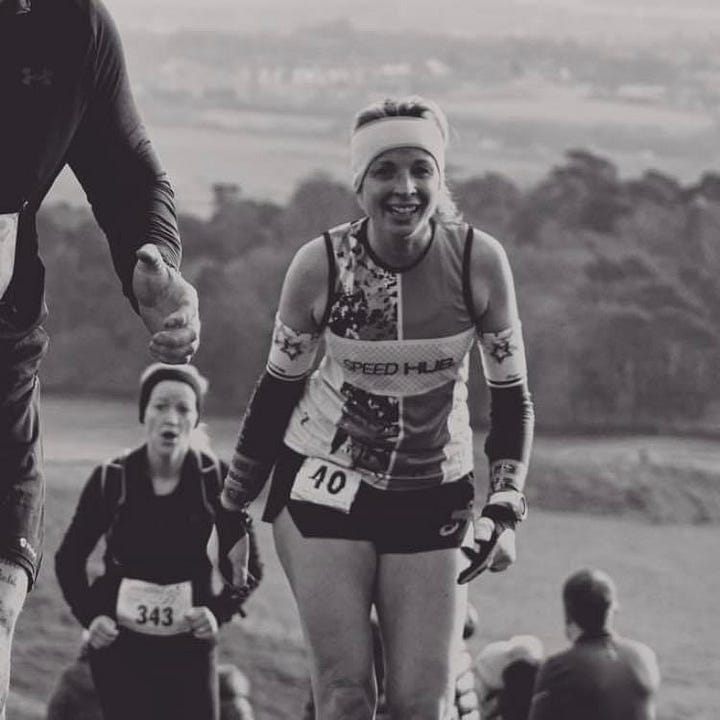

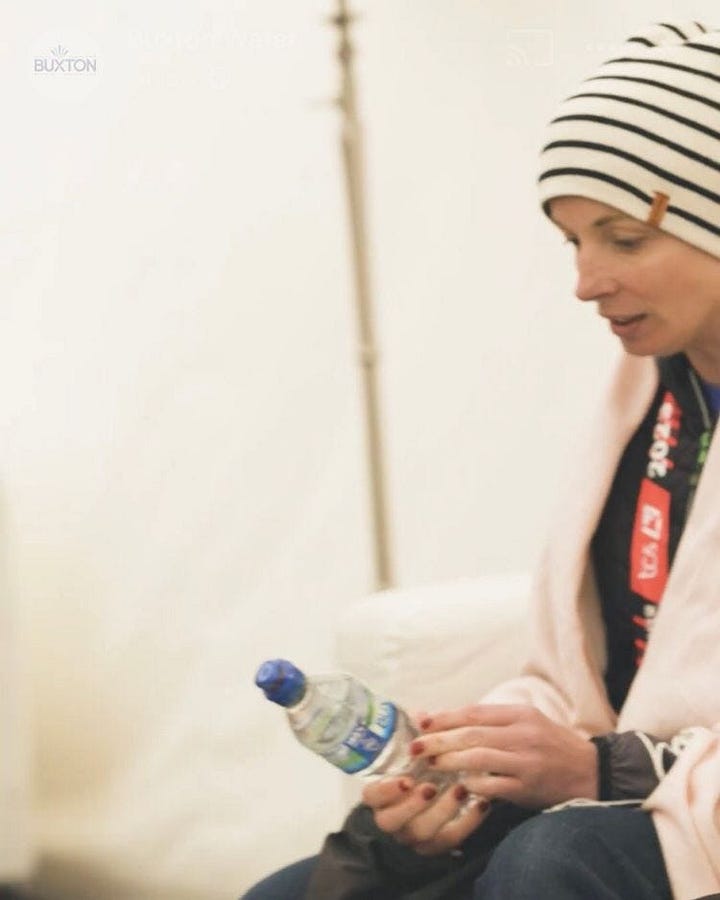
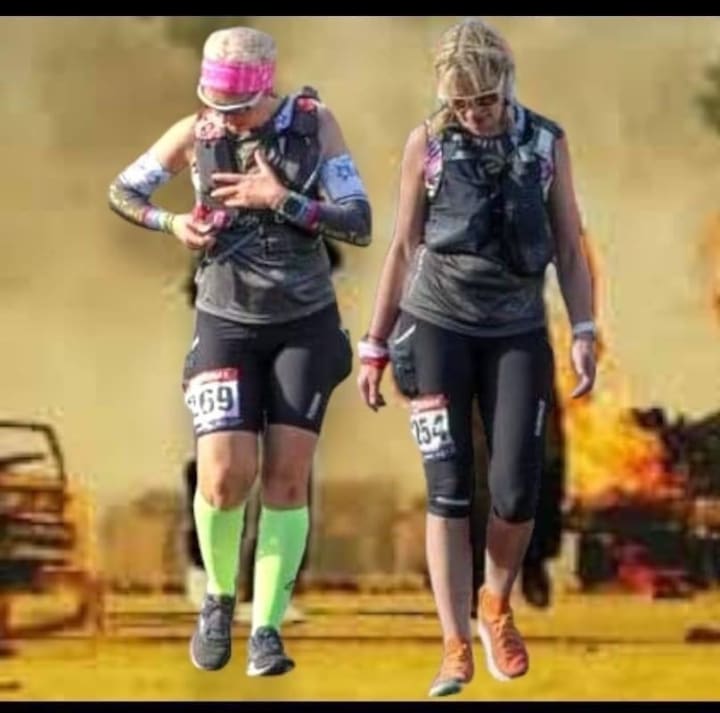
Not only did she unsuccessfully complete the London event - with her knee surgeon cheering her on - Emily has gone on to compete in a host of long-distance events including several triathlons, a multi-day ultra through the foothills of the Himalayas and, most recently, the Marathon des Sables.
How ‘Ro Farah’ mastered bipolar disorder to run 100 marathons:
Rohan Kallicharan has run more than 100 marathons, clocked a fastest time under three hours and raised tens of thousands of pounds for Mind, the mental health charity.
But Rohan’s greatest accomplishment came years before he caught the marathon bug, when the mental health battle he was forced to fight came with the stigma of alleged weakness and inferiority.
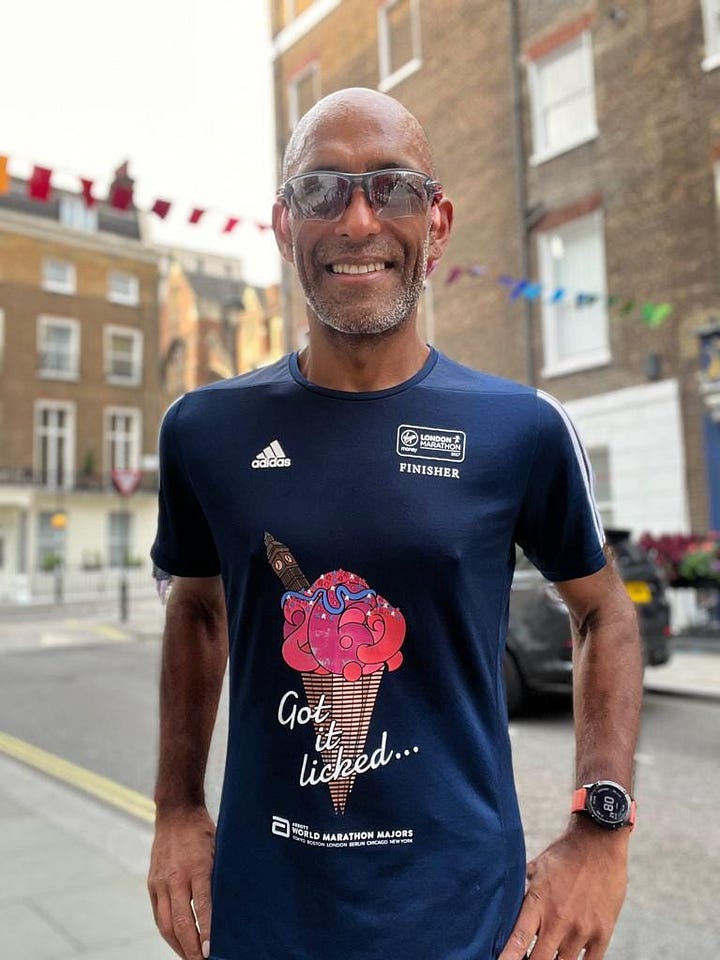
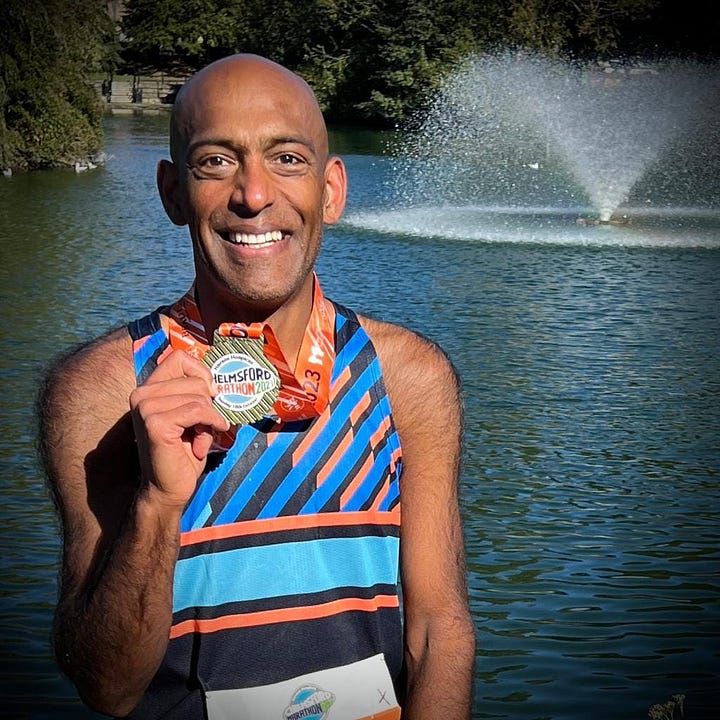
Things had started to unravel for the young Rohan when he was just 17. In the 15 years that followed, he attempted suicide three times. It was only when he was in his early 30s that he was finally diagnosed with bipolar disorder.
The vital news came after he was discharged from hospital following his third suicide attempt. It was the first time he had been referred to a psychologist, a move which he says probably saved his life.
“I remember I sat with him and we pictured the fact that for the next 12 months I was literally going to be a baby in the body of a man.
“From the age of 17 or 18, when I’d really begun to fall ill or at least when the illness began to demonstrate itself, all I'd known was a car crash.
“In my adult life up to that point I'd never been able to hold down steady employment, I'd never been able to pay the bills, I'd never been able to put food on the table. I had never been able to go two or three days without an acute episode either of manic behaviour or depression.
“As it turned out my diagnosis would be rapid cycling bipolar disorder and all of those things that people take for granted, all of the things that my peers were doing, even holding down friendships and relationships were almost impossible because of my behaviour, particularly during manic phases.
“So, after I was diagnosed, it really was about being a baby in a man's body, learning how to function in the way that the world expects you to.”
Although Rohan had started to address his mental health challenges, he was still struggling physically. He weighed 19 stone eight pounds, and had neglected his own physical wellbeing.
It was starting running that changed this. Inspired by the 2012 Olympics, he joined a gym and then entered the Manchester Great Run.
The London Marathon followed and his friends quickly dubbed him ‘Ro Farah’ after British distance star, Mo Farah. Since then, running has been an integral part of his life - alongside campaigning for mental health causes.
“There was a time where there was still a hell of a lot of stigma attached to mental ill health and mental health as a whole.
“What that taught me was there's no shame for anyone. And I think this is a message that I'd get across to everyone.
“There's no shame in walking, there's no shame in being slower than the person who's in front of you when you go out to run.
“You are not, unless you are Eliud Kipchoge or being paid to do so, you're not in a race. We’ve done really well as a running community to be very inclusive and to encourage people to remember, actually, the competition we're in is with ourselves every day, just to get out there when we feel that the world's looking at us and the world's judging us, just to get out there, persevere, and continue to be the very best we can be.”
Read more on ‘Ro Farah’: The Good Samaritan who helped a runner he’d never met reach his sub-three marathon dream
The wheelchair athlete who conquered Comrades:
A sporty university student who enjoyed playing hockey and ultimate frisbee, Claudia Burrough couldn’t have imagined she’d be competing in ultra marathons in Africa as a wheelchair athlete.
But that’s exactly what happened.
In 2022, she became one of the first people to self-push the exacting 89km (55 mile) Comrades Marathon between Pietermaritzburg and Durban.
Rewind to 2018 and she had signed up for the London Marathon after having started running at her local parkrun. It was then she began feeling “quite severe symptoms in my legs”.
The problems saw her forced to use crutches - but that didn’t stop her going to, and taking part in, Bushy parkrun.


Originally, she thought having to use them would be a temporary issue and she’d be back running in no time.
But her condition continued to decline, with her balance becoming steadily worse. Eventually, she purchased a second-hand wheelchair, with the intention of using it for the Royal Parks Half Marathon and then the London Marathon, which she still wanted to do.
“I got it, and I couldn’t push at all. It was horrendous.
“But once I started training for the Royal Parks, I got better and stronger. I realised being in a wheelchair wasn’t the end of the world, because I could now go out all day and do all the things I wanted to.
“Before I’d been limiting myself as I wasn’t able to stand up for long. My wheelchair actually gave me a huge sense of freedom.”
She eventually achieved not only her London goal, but finished a host of other marathons around the world including in Berlin and New York.
Ultra marathons came next and, incredibly, Claudia broke a series of ultra-marathon records - including becoming the 100 mile wheelchair world record holder - despite still competing in most of her races in a day chair.
She stumbled upon the Comrades Marathon while listening to the Marathon Talk podcast. It ended up being one of the best moment of her life.
“A lot of the spectators had never seen a wheelchair user push Comrades, or even taking place in a race before. The crowd were so loud, it was almost overwhelming.
“It was an unbelievable experience. I spent about 88k of it saying ‘I’m never doing this again. It’s been lovely, but I’m never doing this again’.
“And then I crossed the finish line, and got grabbed by the TV company and they interviewed me and were like, ‘so are you going to come back and do it again?’
“And I said, yeah, probably.”
How Neil Russell made Parkinsons’ wait - and ran from London to Barcelona:
Neil Russell was diagnosed with Parkinson’s in 2018. Last year, aged 65, he ran 970 miles from London to Barcelona.
The epic challenge came after he ran from John O’Groats to Lands’ End - known as a ‘Jogle’ - in 2022.
“The reason I’m so determined to do these things is to stick two fingers up at Parkinson’s, and say ‘no, I’m not going to sit at home and watch Netflix, and vegetate and lead a sedentary lifestyle. I am going to do crazy things’.
“Even five years later, I still sometimes think ‘have I got Parkinson’s?’ I can’t believe I have.
“A lot of everyday things you take for granted, I can’t do. For instance, writing. If I wanted to do a little note to my granddaughter in a birthday card I can’t do it.
“While it’s not life threatening, it is difficult to come to terms with.
“When I first got the diagnosis, I just remember being at home and going through my thoughts and very quickly came up with the notion, with a bit of anger I guess, to not let Parkinson’s rule my life.”
The run to Barcelona culminated in a visit to the World Parkinson’s Congress in Barcelona, but Neil is far from finished - next year, he is aiming to run 100 miles continuously from Oxford to Cambridge.
He added: “My message is lead a normal life, don’t give up, just be determined. You will get knock backs.
“There will be very well meaning people who will say you shouldn’t be doing that - ignore them, and just do it.”
Read our original articles:
The five inspirational stories above were all featured on ‘Running Tales: After all is said and run’ and can be found in our archives via the below links.
If you enjoy the extraordinary tales we tell, please consider subscribing or donating via Buy Me A Coffee to help us continue doing what we do.
Thank you.
Prostate cancer and heat stroke couldn't stop Nigel Watson finishing the 'toughest footrace on Earth'
It’s Monday. Sorry. Our Substack promise is to get these podcast inspired articles out on a Thursday. So… we’re late.
Why tackling the toughest footrace in the world will be 'alright' for Emily Moore
If you enjoy this article, check out the other inspirational stories on this newsletter.
How 'Ro Farah' mastered bipolar disorder to embrace London Olympic legacy
Running Tales: After all is said and run is a reader-supported publication. To receive new posts and support my work, consider becoming a free or paid subscriber.
How support of disabled children made conquering Comrades a privilege
As Claudia Burrough raced towards the end of South Africa’s Comrades Marathon her overwhelming feeling was privilege.
Making Parkinson's wait: One runner's epic journey from London to Barcelona
Running Tales: After all is said and run is a reader-supported publication. To receive new posts and support my work, consider becoming a free or paid subscriber.
Recently on the Running Tales Podcast:
Check out our merchandise:
Pretty in Purple: Be a part of the Running Tales revolution with our new merchandise range.
We’ve got buffs, caps, cups, t-shirts and hoodies - why not complete your next run as an everyday runner by doing extraordinary things?
Our hats are in blue though…




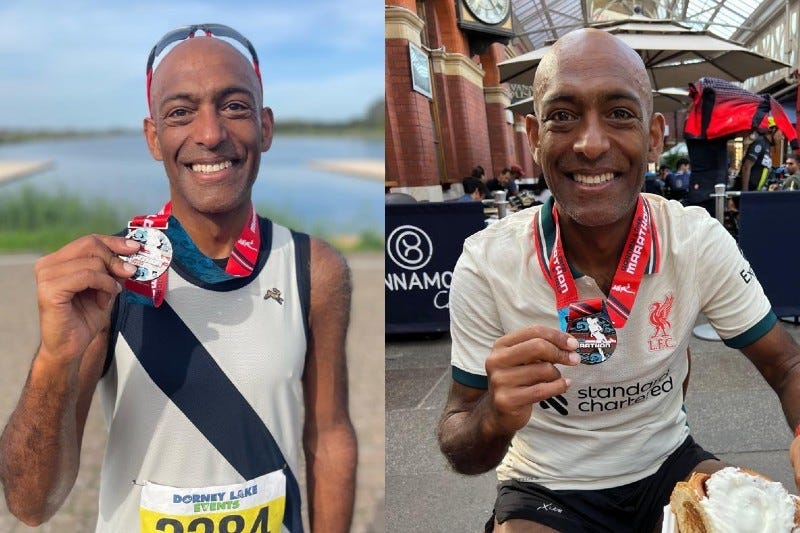
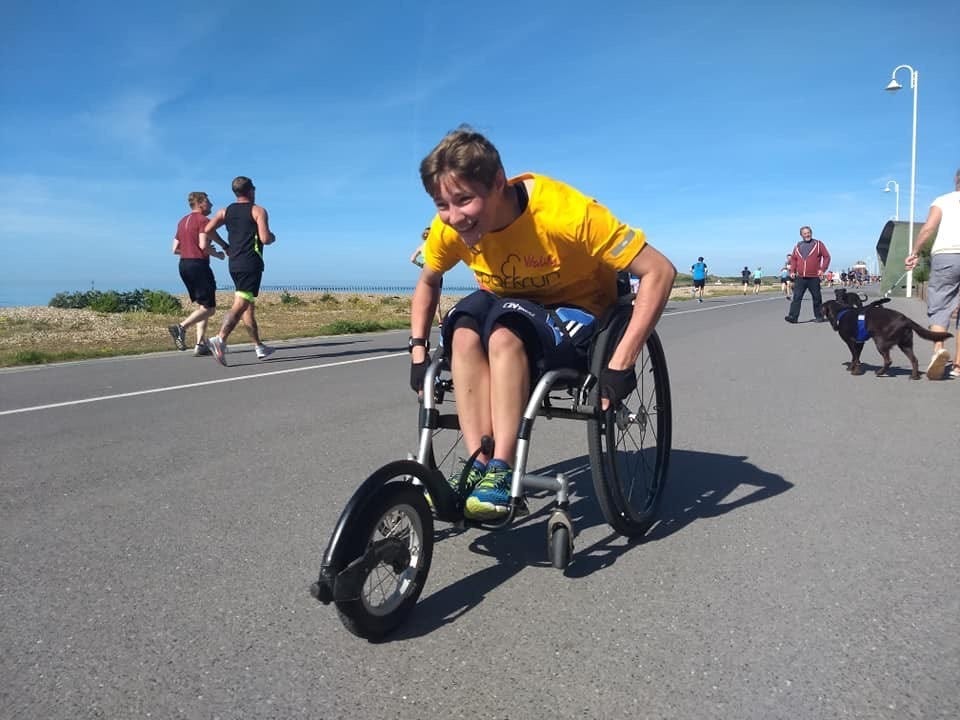
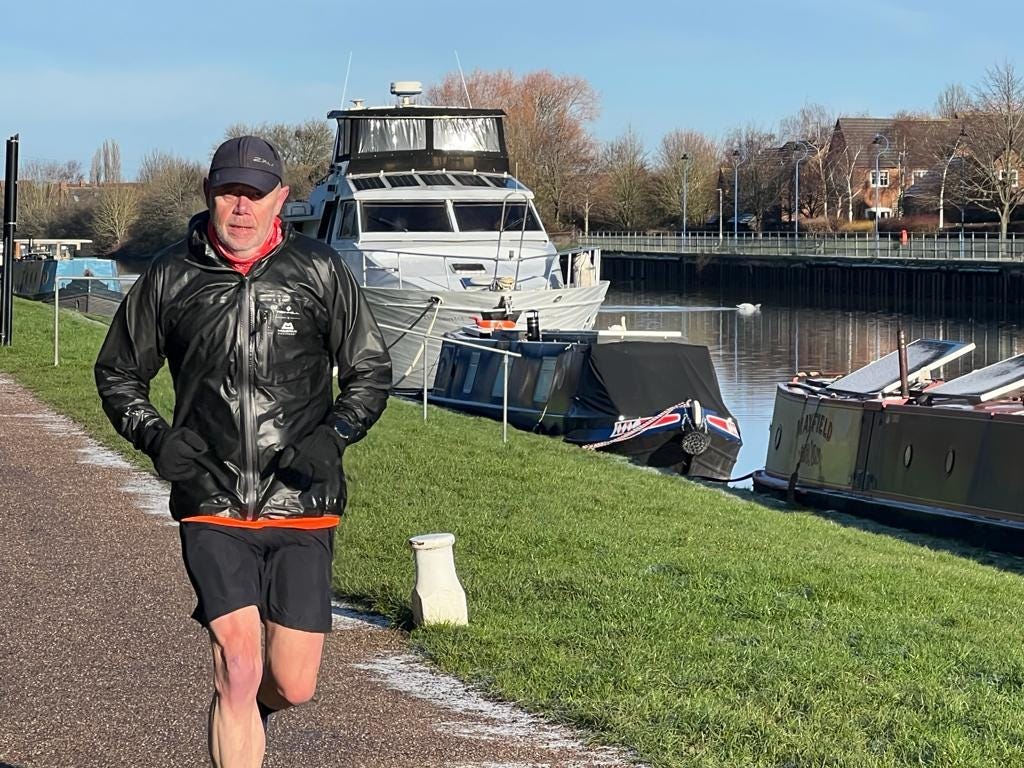
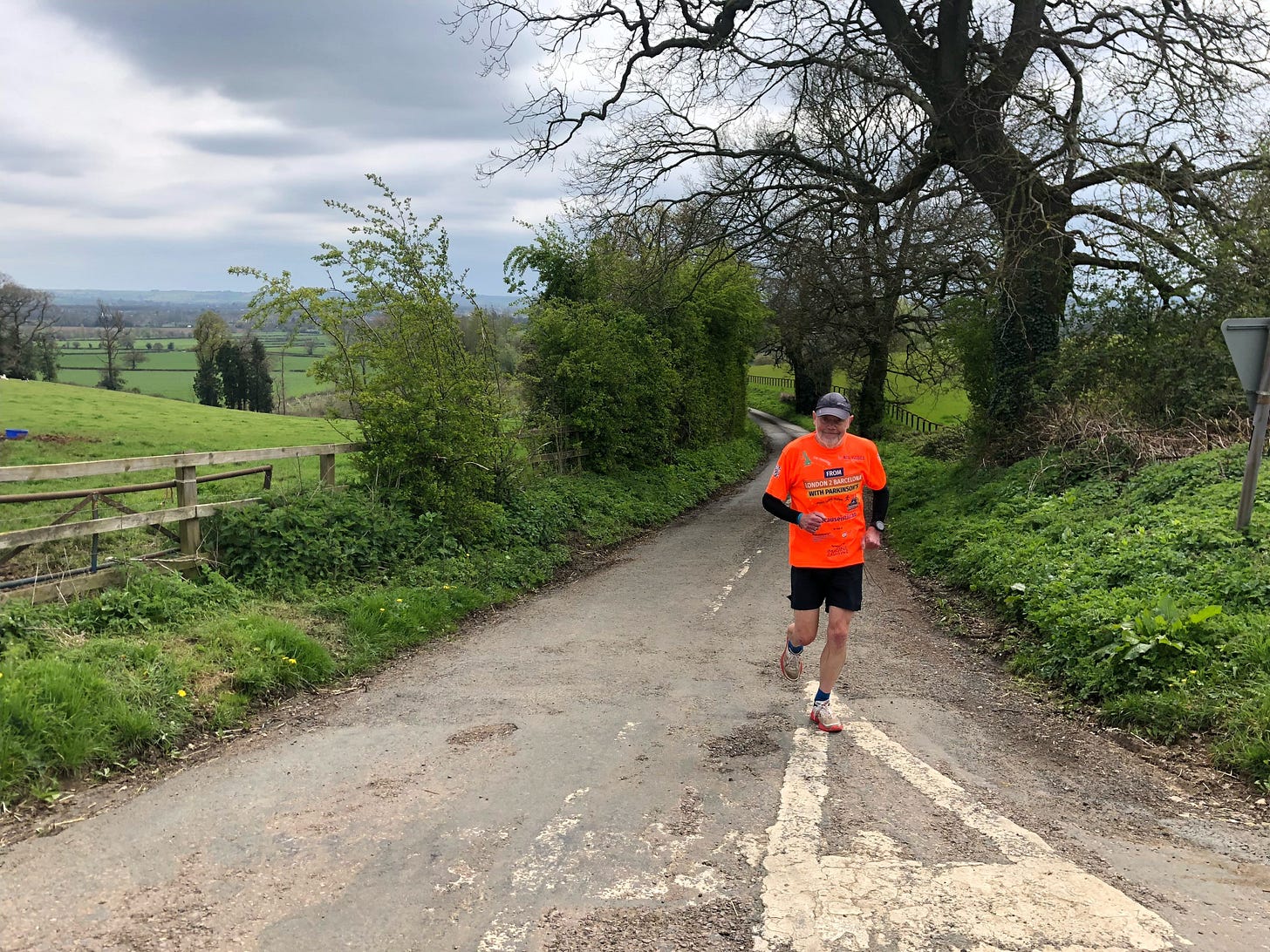
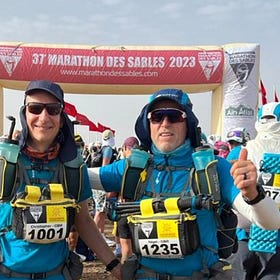
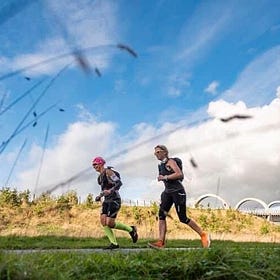



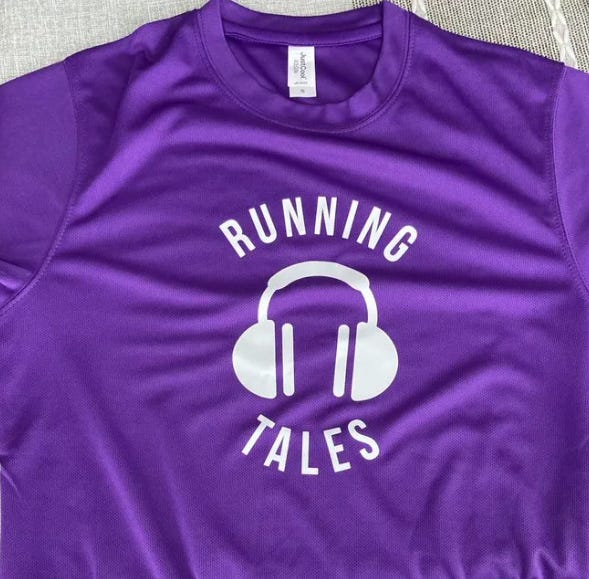
This is wonderful! We watched Kona (a bit in between workouts) but didn't know anything about him. Fascinating story!